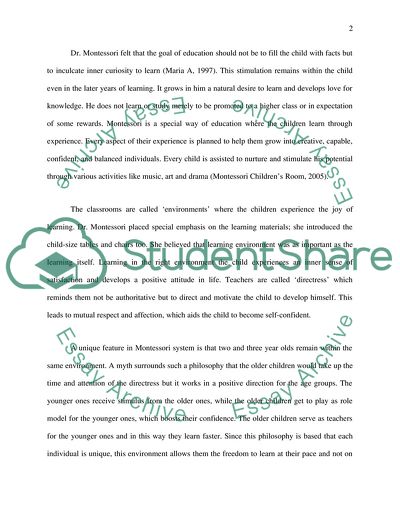Cite this document
(“Maria Montessori's Theory of Education Dissertation”, n.d.)
Maria Montessori's Theory of Education Dissertation. Retrieved from https://studentshare.org/social-science/1703176-maria-montessoris-theory-of-education
Maria Montessori's Theory of Education Dissertation. Retrieved from https://studentshare.org/social-science/1703176-maria-montessoris-theory-of-education
(Maria Montessori'S Theory of Education Dissertation)
Maria Montessori'S Theory of Education Dissertation. https://studentshare.org/social-science/1703176-maria-montessoris-theory-of-education.
Maria Montessori'S Theory of Education Dissertation. https://studentshare.org/social-science/1703176-maria-montessoris-theory-of-education.
“Maria Montessori'S Theory of Education Dissertation”, n.d. https://studentshare.org/social-science/1703176-maria-montessoris-theory-of-education.


